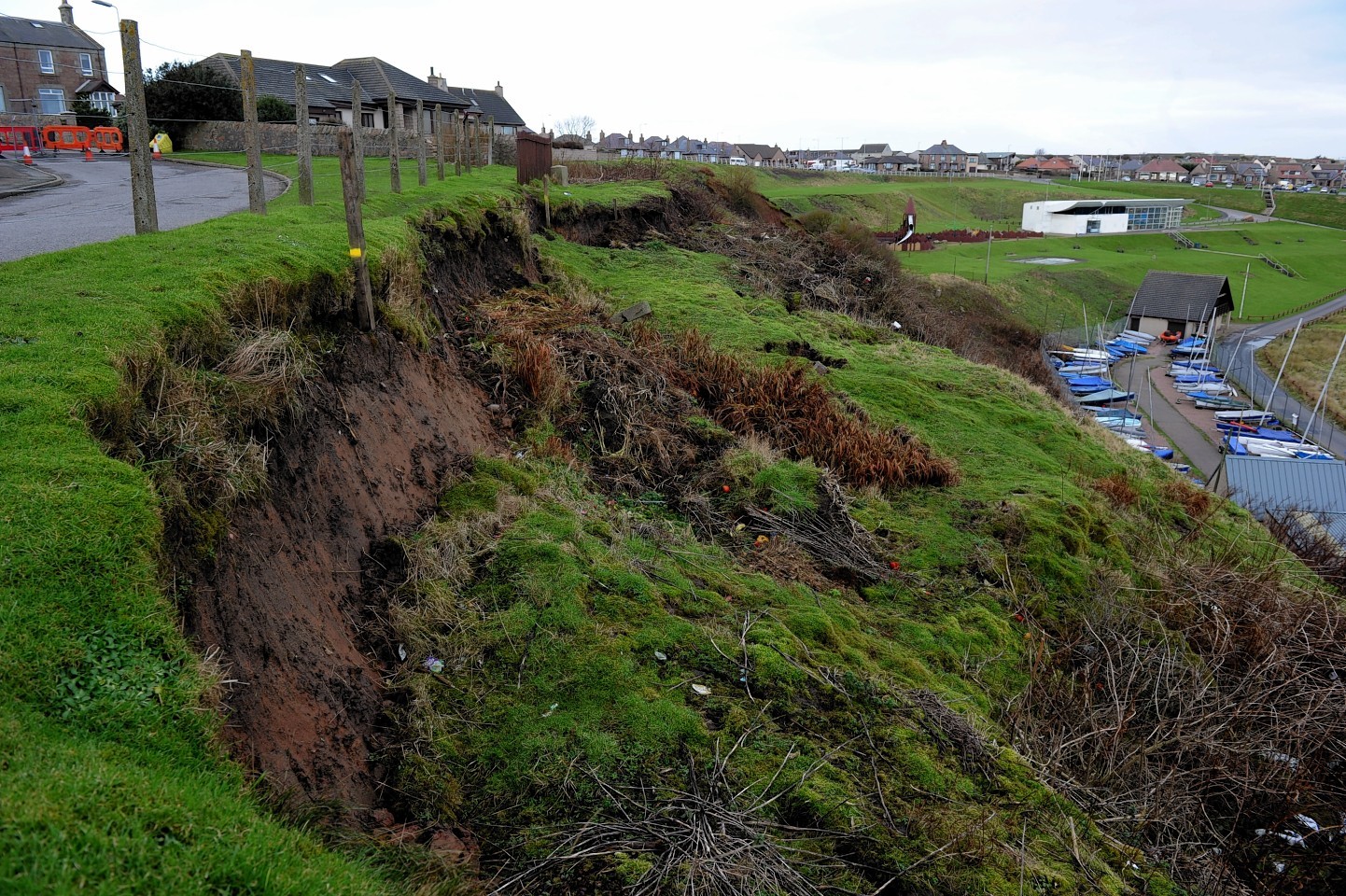Residents in a landslip-hit street are celebrating after “mad” plans to build a dramatic new home in the area were rejected.
Mackenzie Crescent has been closed to traffic since 2012 and householders have urged Aberdeenshire Council to shore-up an unstable slope and reopen the road.
However, they have managed to block proposals for what developers described as a “nautically-themed” property which would have replaced an existing bungalow.
The house would have “reflect nearby industrial maritime architecture” and incorporated a zinc sheeting roof.
Resident and former technical engineer, Peter Buchan, told members of the local authority’s Buchan area committee that “clarification” was needed on who would enforce the construction management plan for the area to ensure no heavy lorries, cranes or excavators got too close to the unstable slope.
He said: “It only takes one driver to enter Mackenzie Crescent from the wrong end or an over reaching crane to topple on the damaged road to cause further damage.
“There is a high risk of more damage or an accident this winter if this is allowed to continue and to permit demolishing and rebuilding a house at the same spot at this point in time would be utter madness and folly.”
Mr Buchan also described the proposed home as a “nautical carbuncle”.
Peterhead South and Cruden councillor Stephen Smith said: “The principle of a home is well established on the site, but we have to be consistent, in my view, on the stability of the slope.
“I move it’s not an appropriate development site.”
A council legal officer informed members that a valid planning reason was required to reject the proposals, and members blocked the scheme on the grounds that the proposed design did not fit with the surrounding area.
The Mackenzie Crescent saga has rumbled on for several years.
The council originally planned to construct a supporting wall at an estimated cost of £200,000 – but the price rocketed to £610,000 after more detailed design work was carried out.
The increase in cost led councillors to decide that it was not a viable option, and instead they voted to pay about £20,000 to seal-off the street permanently.
